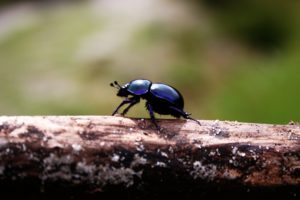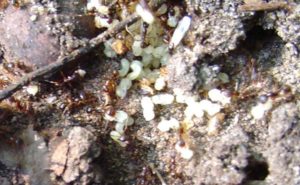Read and Learn More About Pests
June Bugs and Your Garden
June bugs (also known as Junebugs or June Beetles) are just that: beetles. They’re actually a member of the scarab beetle family, measuring a little under half an inch long. June beetles actually begin hatching in May in most places, particularly in the Southeastern United States. Texas is actually the epicenter of June beetle activity.
Male and female June beetles actually behave quite differently though they appear similar. Males are far more aggressive and tend to be attracted to light. Females, on the other hand, like to burrow under the soil to lay their eggs. Larvae of different species grow at different rates but June bugs generally produce one generation a year.
June bug larvae are actually the biggest nuisance to gardeners. As they grow their appetites are insatiable – they eat everything from grass roots to vegetables to ornamental plants. Though they’re not poisonous and don’t sting, the male June bug’s attraction to light can be quite obnoxious to homeowners enjoying their outdoor space in the summer months.
Damaging larvae (sometimes known as “white grubs”) can be hard to identify. If you see patches of grass that are dead or dying, particularly year after year, you may have a white grub problem. Homes that are prone to June bug issues can greatly benefit from treatment aimed at preventing the bugs in the first place.

It’s important to apply any chemical treatments aimed at reducing white grubs be applied at exactly the right time to prevent hatching and growth stages. If your home has a June bug issue you should contact a pest control professional immediately to begin a plan for preventing white grubs.
There are some non-chemical solutions to June bug larvae but they can be expensive and their effectiveness may be limited. If you live in the south, the southwest, or particularly in Texas, check your lawn regularly for signs of June bug damage. June bugs don’t have to ruin your June (or July, or August…!) Call a pest control professional in your area to find out more about your treatment options for beetle infestations.
More Pest Control Solutions
Read Reviews
Read reviews by other customers like you.
Research
Tips and articles to help you select a pest control provider.
Find Providers
Find a qualified pest control provider in your area.

